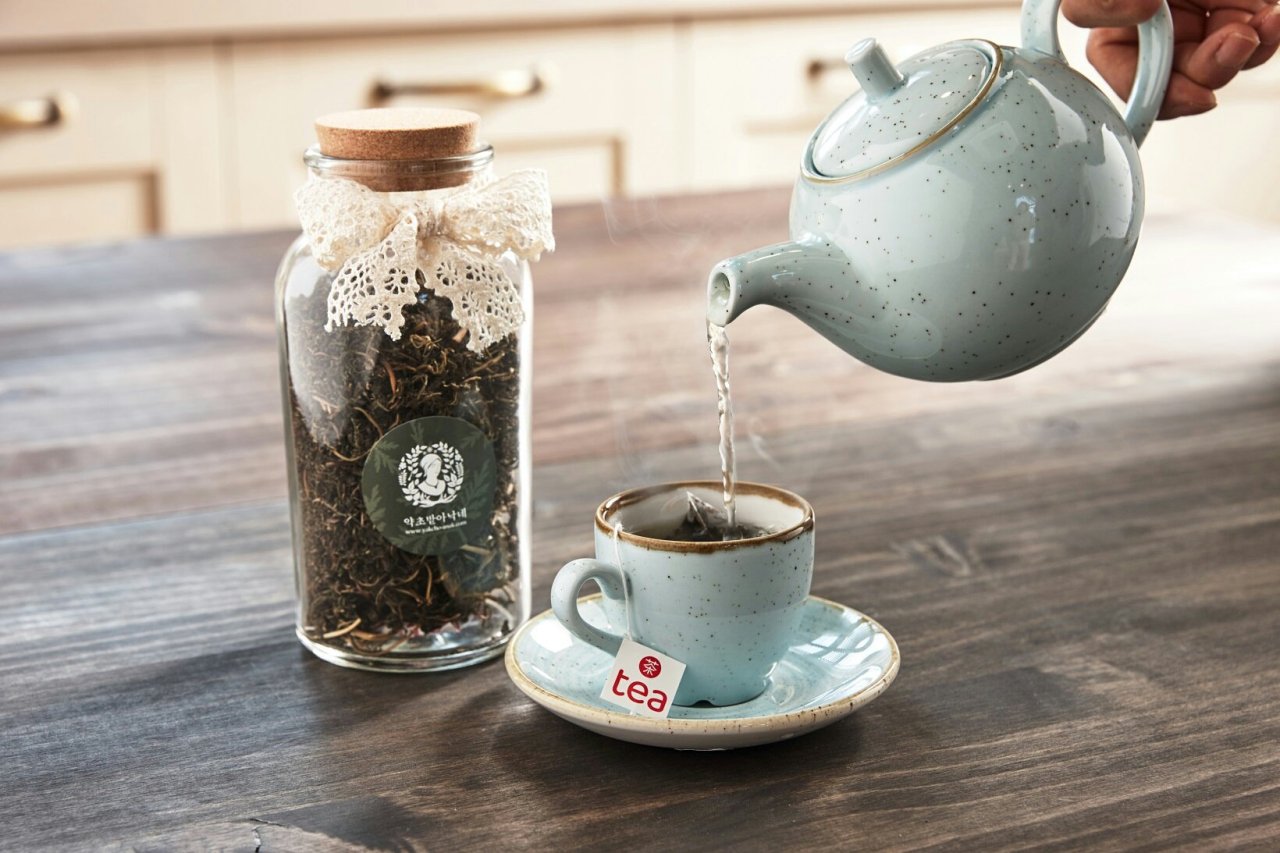 |
After hand-picking all the Artemisia annua, the wormwood is slightly roasted for her loose leaf tea and the fermented tea is aged for a full month, Choi said, adding that the loose leaf tea smells like mint and the fermented tea has a nutty flavor. (Photo credit: Yakcho-Anak) |
When spring arrives in Korea, it’s the perfect time to make fragrant soups and rice cakes with young Artemisia princeps also known as mugwort or “ssuk” in Korean.
For Bittelock Agricultural Corporation CEO Choi Yoon-hee, however, early spring holds greater significance for a different species of mugwort called “gaeddong-ssuk.”
Also known as sweet wormwood, or Artemisia annua, gaeddong-ssuk has a long history that dates back over 300 years as a medicinal herb in Korea and China for treating ailments like fevers and inflammation.
According to the “Donguibogam: Principles and Practice of Eastern Medicine,” a text compiled in Korea in 1613, Artemisia annua is recommended for relieving symptoms of fever.
More recently, sweet wormwood has come to the forefront as the source of an extract called artemisinin, which is used to treat malaria, and in 2008 artemisinin was used by University of Washington researchers to create a compound that was tested on human leukemia cells as a potential cancer treatment.
According to media reports on the university’s study, researchers honed in on artemisinin because the extract kills around 100 cancer cells for every healthy cell.
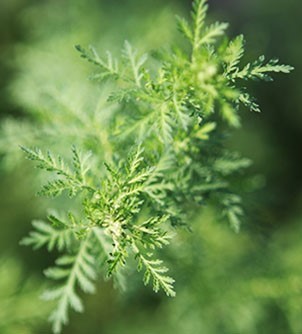 |
Artemisia annua, also known as “gaeddong-ssuk” or sweet wormwood, has a long history as a medicinal herb both in Korea and in China for treating ailments such fevers and inflammation. (Photo credit: Yakcho-Anak) |
Choi was drawn to sweet wormwood upon learning about its medicinal properties through the press.
“I read and studied dissertations and clinical tests on ‘gaeddong-ssuk,’” Choi, 42, said in an email interview.
Choi developed a personal interest in the medicinal herb because her parents were struggling with diabetes and gastrointestinal issues.
“One of the well-known components of mugwort is eupatilin,” Choi said. “Eupatilin aids digestion and protects the stomach lining.”
Indeed, eupatilin is the main active ingredient of a drug called Stillen in Korea that is used to treat gastritis and peptic ulcers and is present in mugwort like Artemisia asiatica and Artemisia annua.
After studying Artemisia annua, Choi grew her own gaeddong-ssuk and made them into pills, tea and extract for her parents.
“My father took the pills and (his condition) improved,” Choi said, adding that her mother also showed improvement after drinking the tea and extract for about five months.
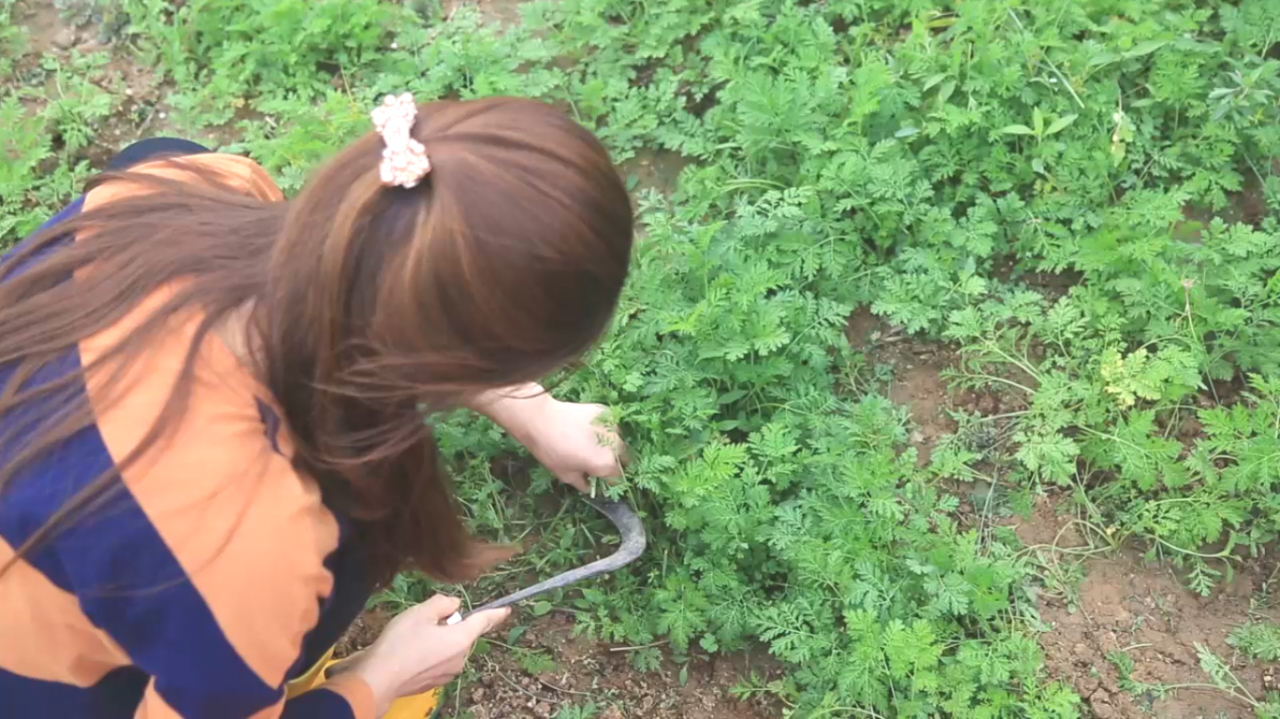 |
Every year, when early spring arrives, the young, tender Artemisia annua populating Choi’s farm in Gochang County, North Jeolla Province are ready to be hand-picked. (Photo credit: Yakcho-Anak) |
So began an ambitious enterprise.
Choi recollected how difficult it was in the beginning.
“There was a time when I would be out in the farm, past midnight, watering the plants that wouldn’t grow,” Choi said.
Now, some seven years later, one can find her teas, which she sells under the brand Yakcho-Anak, at Gangnam department stores and online on Naver.
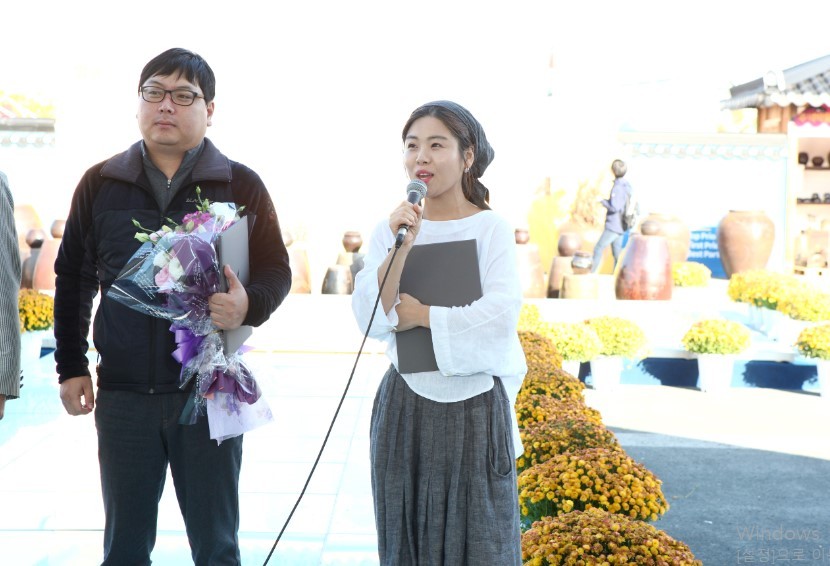 |
Bittelock Agricultural Corporation CEO Choi Yoon-hee (right) receives a prize at the 2014 Jeonju International Fermented Food Expo for Yakcho-Anak. (Photo credit: Yakcho-Anak) |
Choi’s tea also received a prize at the 2014 Jeonju International Fermented Food Expo and a gold prize at the 2014 Korea International Women’s Invention Exposition.
Choi has come a long way from when she traded in her job at an architectural and interior design firm to pursue a new career in farming in 2011.
After leaving her job, Choi took a two-month course on farming with the ambition of launching a kimchi business. Instead, she found herself growing sweet wormwood on a farm in Gochang County, North Jeolla Province in 2013.
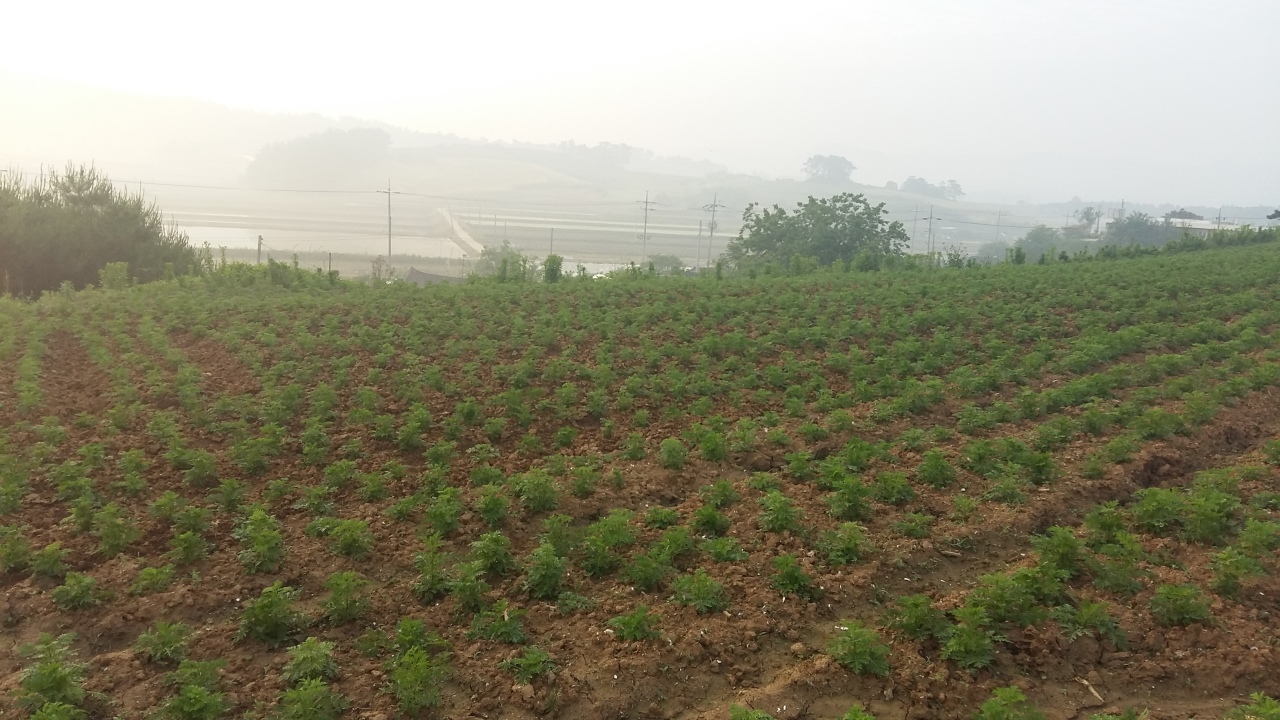 |
Every year, when early spring arrives, the young, tender Artemisia annua populating Choi’s farm in Gochang County, North Jeolla Province are ready to be hand-picked. (Photo credit: Yakcho-Anak) |
While her farm totals around 10,000 pyeong, or 33,058 square meters, Choi says the Artemisia annua yield from the farm is relatively small.
“The amount we harvest is small,” said Choi in a follow-up video interview. “We pick all the ‘gaeddong-ssuk’ by hand.”
Every year, when early spring arrives, the young, tender Artemisia annua populating Choi’s farm are ready to be hand-picked.
“For over 12 hours each day the wormwood is harvested,” Choi said.
After hand-picking all the Artemisia annua, the wormwood is slightly roasted for her loose leaf tea and the fermented tea is aged for a full month, Choi said.
By May or June, the teas are ready for consumption.
“Our loose leaf tea smells like mint,” Choi said with a grin. “Our fermented tea has a nutty and deep flavor. It is soft and delicate.”
Indeed, the fermented tea exudes a light fragrance reminiscent of its more famous cousin ssuk.
Sip after sip yields a soothing flavor, neither bitter nor too strong.
“The fermented tea, when it has been steeped for about five minutes, releases an umami flavor,” Choi said. “After 10 to 20 minutes, one gets a deeper flavor.”
Choi not only sells her fermented tea in loose leaf form but also in easy to use tea bags. However, she is now looking to develop a powdered form of her fermented tea for those who want to mix it with water for added convenience.
She also sells Artemisia annua pills and extract.
Looking back on when she first started out, she said, “I wanted to do a food business. I wanted to create my own brand and distribute it.”
Now with her teas, extract and pills sold at department stores and online, Choi has pretty much achieved her dreams.
Bittelock Agricultural Corporation
207-ho, Bioflex, Jeonbuk Institute for Food Bioindustry
111-18, Wonjangdong-gil, Deokjin-gu, Jeonju-si, Jeollabuk-do
1577-7391; anakne.kr (Korean website); anakne.net (English website)
Teas cost 18,000 won to 68,000 won
By Jean Oh (
oh_jean@heraldcorp.com)








![[Herald Interview] 'Trump will use tariffs as first line of defense for American manufacturing'](http://res.heraldm.com/phpwas/restmb_idxmake.php?idx=644&simg=/content/image/2024/11/26/20241126050017_0.jpg)


![[Herald Review] 'Gangnam B-Side' combines social realism with masterful suspense, performance](http://res.heraldm.com/phpwas/restmb_idxmake.php?idx=644&simg=/content/image/2024/11/25/20241125050072_0.jpg)
![[Health and care] Getting cancer young: Why cancer isn’t just an older person’s battle](http://res.heraldm.com/phpwas/restmb_idxmake.php?idx=644&simg=/content/image/2024/11/26/20241126050043_0.jpg)